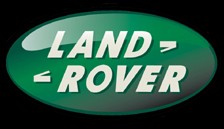A new business plan announced today by Jaguar Land Rover has confirmed that its LRX concept will become the most fuel efficient production Range Rover ever.
The vehicle will be assembled at Halewood, creating 800 jobs, as part of plans to increase the company's competitiveness, growth and profitability and respond to challenges of climate change.
However it will close one of its two plants in the West Midlands, either Solihull or Castle Bromwich, by 2015.
JLR decribed its plan as "decisive actions to see through the next 12-18 months as markets recover" and position the company to prosper in the future.
Jaguar Land Rover chief executive David Smith said: "This is a plan that recognises the impact the economic collapse has had on our business, and at the same time the opportunities that lie ahead for these two great brands.
"We are confident that a new more efficient and competitive structure combined with future investment will unlock the true potential of this business."
The recession and resultant collapse in global new car sales has resulted in manufacturing capacity utilisation of less than 60% at Jaguar Land Rover, which combined with the credit crunch, exposed fundamental weaknesses in the structure of the business.
The company responded with actions including producing 100,000 fewer cars, cutting 2,500 jobs and freezing pay, but still recorded a loss.
Now JLR has identified global competitive benchmarks on cost and efficiency which it wants to match if not beat.
The new strategy addresses both medium and long-term plans, but has an acute focus on the next year. Actions across the business fall into two main categories, product and business:
On the product front, new segment entries will build on Jaguar and Land Rover's design, performance and technology. In addition, a new generation of lightweight saloons, sports cars and premium SUVs with hybrid and electric powertrains, will significantly reduce fuel consumption and CO2. There will also be additional derivatives and powertrain variants from core model lines.
On the company side, as it reduces engineering complexity for its new product range, it will merge its two West Midlands assembly plants into one by the middle of the next decade.
This will reduce costs, which will be further cut through pension restructuring, lower employment costs for new hires and a focus on IT and business simplification.
It also aims for volume growth, especially in emerging markets, combined with low-cost country sourcing will also reduce variable cost.
JLR said it does not envisage any compulsory redundancies.















Login to comment
Comments
No comments have been made yet.